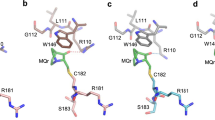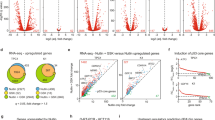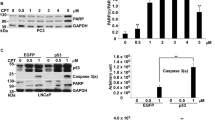Abstract
p53, a tumor suppressor gene, functioning as a transcription factor, has been recently shown in a cell free system to be subject to redox (reduction/oxidation) regulation. Oxidants or metal chelating reagents disrupt wildtype p53 conformation and decrease or abolish its DNA binding activity, while reductants restore wildtype conformation and increase DNA binding. We have extended these observations to intact cell systems by using luciferase transactivation assay in two murine tumor cell lines, both harboring endogenous wildtype p53. The results showed that none of these in vitro active reagents, except 1,10-phenanthroline (OP) has a significant effect on p53 transactivation activity. OP, a metal chelator and p53 inactivator in cell free systems, however, induces p53 transactivation activity as well as sequence-specific DNA binding in a dose dependent manner. OP also differentially induces endogenous expression of several known p53 target genes such as Waf-1 and Mdm-2, but not Bax, Gadd45, and PCNA. Increased p53 activity induced by OP is not due to elevated p53 mRNA nor to protein levels. Furthermore, the OP-induced p53 transcriptional activation is not due to its potential DNA intercalating activity, but mainly due to its metal chelating activity. OP was also found to induce dramatically apoptotic cell death in these tumor cells harboring wildtype p53, to a less extent in MEF cells from p53 knockout mice and not at all in Saos-2 cells without p53 or Rb. We concluded from this study that (a) unlike what has been seen in vitro, OP induces p53 activity in intact cells (b) OP activates p53 transcriptional activity without increasing p53 protein; and (c) activation of p53 may contribute to apoptosis, but is not required.
This is a preview of subscription content, access via your institution
Access options
Subscribe to this journal
Receive 50 print issues and online access
$259.00 per year
only $5.18 per issue
Buy this article
- Purchase on Springer Link
- Instant access to full article PDF
Prices may be subject to local taxes which are calculated during checkout
Similar content being viewed by others
Author information
Authors and Affiliations
Rights and permissions
About this article
Cite this article
Sun, Y., Bian, J., Wang, Y. et al. Activation of p53 transcriptional activity by 1,10-phenanthroline, a metal chelator and redox sensitive compound. Oncogene 14, 385–393 (1997). https://doi.org/10.1038/sj.onc.1200834
Received:
Revised:
Accepted:
Issue Date:
DOI: https://doi.org/10.1038/sj.onc.1200834
Keywords
This article is cited by
-
A small molecule inhibitor of the UBE2F-CRL5 axis induces apoptosis and radiosensitization in lung cancer
Signal Transduction and Targeted Therapy (2022)
-
Functional characterization of SAG/RBX2/ROC2/RNF7, an antioxidant protein and an E3 ubiquitin ligase
Protein & Cell (2013)
-
Ribosomal protein S27L is a direct p53 target that regulates apoptosis
Oncogene (2007)
-
A small molecule Smac-mimic compound induces apoptosis and sensitizes TRAIL- and etoposide-induced apoptosis in breast cancer cells
Oncogene (2005)
-
Histone hypoacetylation is involved in 1,10-phenanthroline?Cu2+-induced human hepatoma cell apoptosis
JBIC Journal of Biological Inorganic Chemistry (2005)



